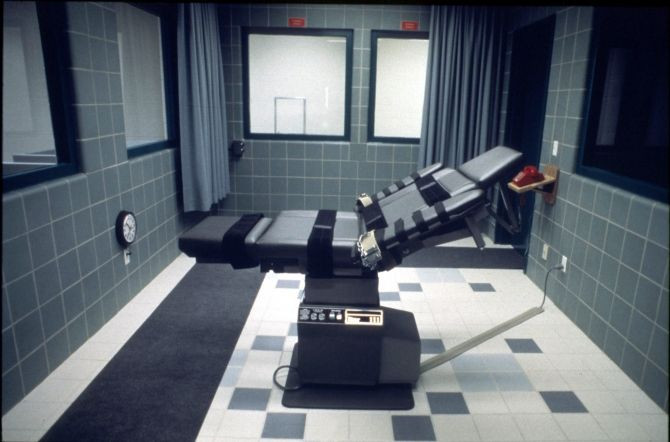Drug Responsible for Michael Jackson's Death is Now Missouri's Choice for Executions

Missouri's new state execution drug is drawing a lot of criticism. The drug has not been tested nor can it be guaranteed to not cause pain or suffering in prisoners.
The Associated Press reports that the drug in question, Propofol, is an anesthetic that has received its fair share of attention outside of Missouri's decision to use the untested drug for state executions. Propofol was responsible for the overdose death of Michael Jackson in 2009.
Previously, Missouri had used a combination three drugs that were administered to the condemned for its state executions. The three drugs were used in succession to put the inmate to sleep, to stop the lungs and to stop the heart. Previously Sodium thiopental was used to put an inmate to death as part of the lethal injection procedure but recently makers of sodium thiopental stopped selling the drug for executions. Some states have switched to the barbiturate pentobarbital to replace sodium thiopental but the manufacturer of pentobarbital also opposes using the drug for executions.
Because of the lack of a drug option to put inmates to sleep, Missouri has opted to abandon the three drug system in favor of using just propofol for state executions. Because the changes were administrative, it did not require the approval of the state legislature. There was no explanation as to why propofol was chosen to be the singular drug used for state executions and the only reason why Missouri changed their method of lethal injection was because sodium thiopental is unavailable.
There are no current executions scheduled for Missouri although that may change as Missouri's Attorney General Chris Koster requested the Missouri Supreme Court to schedule dates for 19 inmates who are out of appeals. In 2011, Missouri had only one state execution in 2011, and a total of two executions since 2009, and currently has 47 inmates on death row.
Currently, 33 states have the death penalty and all the states have lethal injection as their primary method for state executions. In regards to the safety of using propofol, Chris Cline, spokesman for the Missouri Department of Corrections, issued this statement to The Associated Press "Working with expert guidance, we are confident that this new one-drug protocol will be effective and appropriate."
Missouri's decision faces a lot of scrutiny such as concerns about correct dosage levels and administration of propofol which could lead to pain and suffering. If administered incorrectly, propofol may not kill the inmate and the execution would need to be restarted.



























